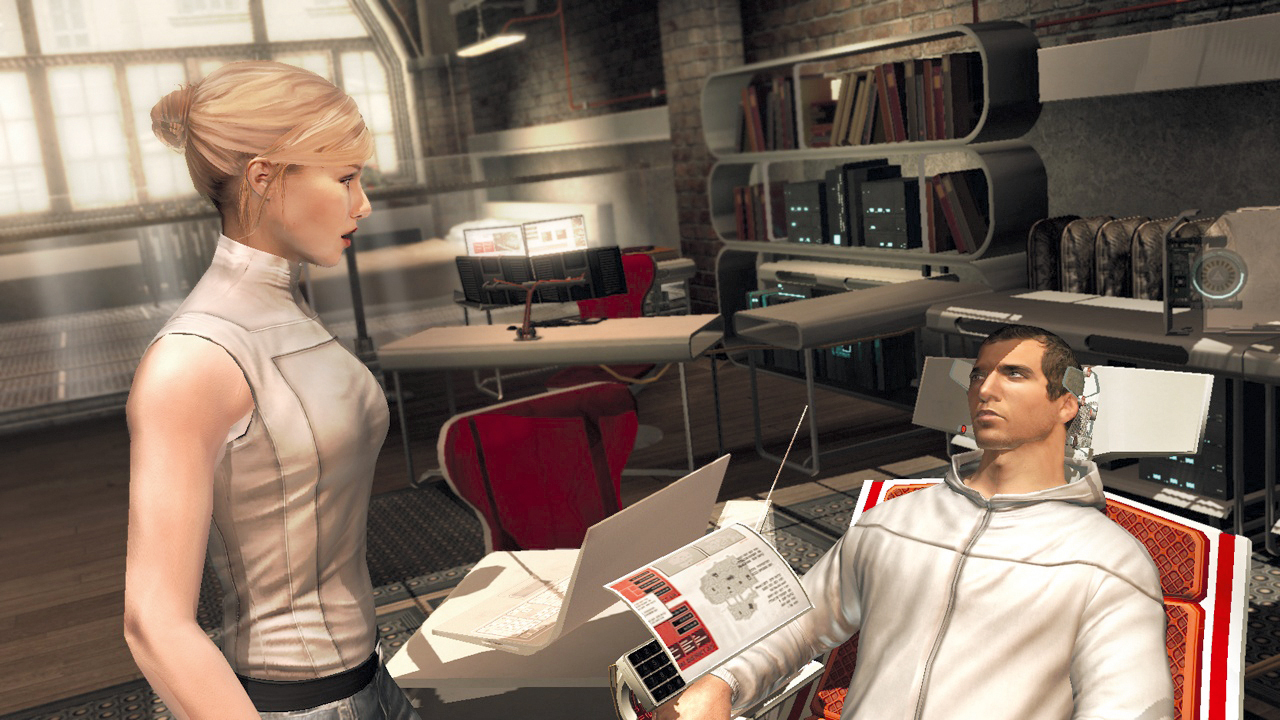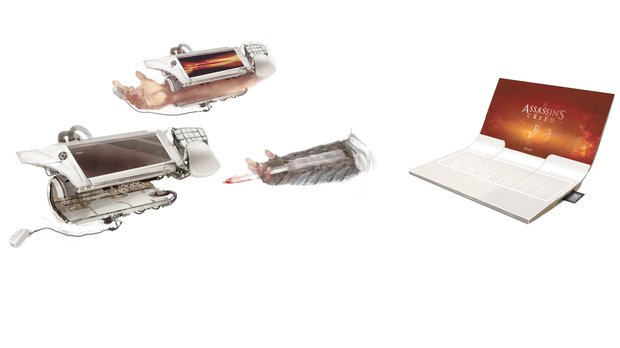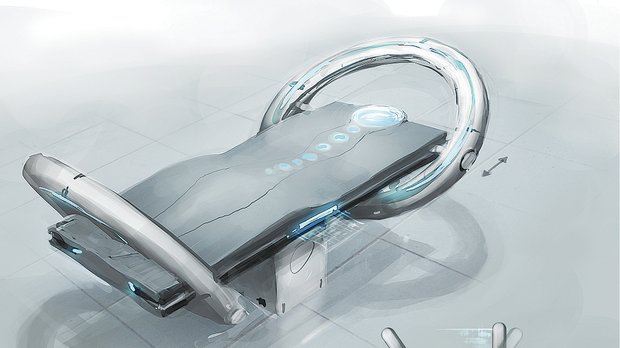Why Assassin's Creed's Animus is more than just a plot device
The Animus is a device that renders genetic memories in three dimensions, which situates it firmly in the realm of total nonsense. The problem isn’t the device – its mechanisms and workings are obfuscated. No, it’s the premise. Genetic memory is a concept that some scientists support, but it refers to humanity-wide inherited responses to certain stimuli. There’s no evidence that something as specific as what your ancestors were doing during the Battle of Bunker Hill is coded into your DNA. This isn’t science-fiction, then, it’s full-blown science-fantasy.

Still, what the Animus does isn’t as important to Assassin’s Creed as what it allows the series to do. Ubisoft’s games, insistent as they are on wrapping a present-day frame narrative around their adventures, needed a link between now and the past. A time machine would be problematic, raising insoluble questions and risking paradoxes, so the Animus is the perfect solution. It lets the present-day cast have intimate knowledge of the past but no way to influence it. It can even threaten game-ending desynchronisation should you try to, say, assassinate the wrong people to alter the outcome of the Third Crusade.
This is the Animus’s other handy function: it allows the impositions of the series’ video game nature to hide in plain sight, cheekily staring the player in the face even as it contextually excuses them. The real reason you can’t pick your own assassination targets is that Ubisoft hasn’t built an epic, branching narrative. You can’t massacre civilians on the streets either, because it doesn’t fit the story. Attempt to do so and the Animus will threaten to cut you off. The hero of Prince Of Persia’s 2003 incarnation chided players when he died as part of a plot device that saw him relate his own story. The Animus goes further and forbids you from going off script.
But while the Prince was merely storytelling, the Animus is simulating. It’s a computer program and makes no attempt to hide the fact. This is the irony of Assassin’s Creed: Ubisoft realises its historical settings with unrivalled attention to detail, and then constantly reminds you that they’re fakes. There’s that UI for a start, superimposing flickering wireframe glyphs upon interactive objects. More subtly, there’s the way the series never seeks to find narrative excuses for its limits. It’s practically traditional in Grand Theft Auto, for instance, that some sort of natural disaster or terrorist warning will shut off access to the full city in the early stages of a game. Assassin’s Creed doesn’t need to find organic reasons to prevent the player wandering off. Its walls aren’t even invisible – they’re crackling fissures that demonstrate the simulation’s opposition to your independent action.

There’s an upside to this, though, and it’s that Assassin’s Creed is supremely comfortable in its nature as a game. The Matrix might have beaten Ubisoft to dropping its hero into a pure white space, but that doesn’t change the elegance of the fact that Assassin’s Creed’s loading screens are just that. Its menus are the same. Similarly, when Desmond is reminded of the basics at the start of each instalment, he scales abstract, textureless geometry. Few games are so barefaced in showing you the building blocks from which their worlds are made, and even fewer have a means to do so.
For all the meta potential of the setup, however, Assassin’s Creed has always stopped short of something as obvious as putting a controller in Desmond’s hands. Indeed, as the series has progressed, it’s blurred the distinction between its simulated world and its ‘real’ one. The first game let you potter around Desmond’s laboratory prison at predetermined points. The controls were sluggish, interactivity was limited, and the tasks were dull. It was as boring, in other words, as doing chores having just switched off a video game. Later entries relied upon the so-called ‘Bleeding Effect’, an elegant means of transferring Animus gameplay into the real world, but one that has come at the expense of the contrast between the present day and virtual space.

One area where Assassin’s Creed has truly embraced the Animus’s role as a surrogate game console is the multiplayer, where Templar trainees engage in deathmatches in order to hone their skills. The great gimmick of the mode has always been that to blend into environments you must behave in the slightly stilted, prescriptive nature of an NPC. Matches often devolve into rooftop chases, of course, but as a concept it is massively daring. Most games want you to invest in their simulated worlds, but Ubisoft asks you to embrace the Animus’s artificiality and replicate it.
Weekly digests, tales from the communities you love, and more
And there are hints this attitude is bleeding back into the main game. Complete AC3 and your after-credits task is a collect-a-thon that lets Connor unlock ‘Animus hacks’. These exploits turn you invincible or invisible, let you switch season from summer to winter, or change day to night. They’re cheats. But, intriguingly, they’re cheats integrated into the fiction of the game. They might be endgame toys, but there’s no reason why future games couldn’t let players tear at the fabric of this self-consciously virtual world in more subtle ways.
While the Animus is no longer quite as obvious in the more recent entries in the series, you're pulled out into the real world far less often, it's still always there in the background, justifying that futuristic glitches within its historic worlds. But as the series becomes increasingly more tired, does it need a frame narrative at all? Do its doggedly researched worlds have to be self-consciously fake? Is it time to retire the Animus, or to make better use of its unique, explicitly simulated space?
Read more from Edge here. Or take advantage of our subscription offers for print and digital editions.

Edge magazine was launched in 1993 with a mission to dig deep into the inner workings of the international videogame industry, quickly building a reputation for next-level analysis, features, interviews and reviews that holds fast nearly 30 years on.


